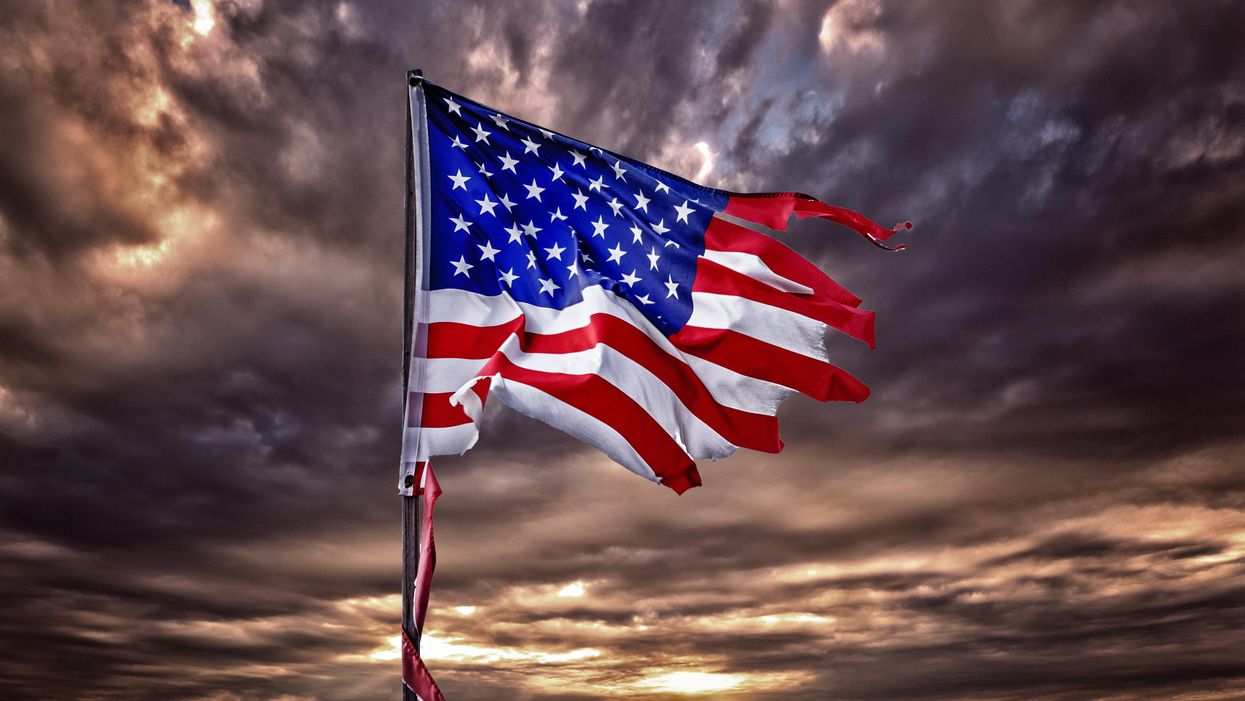Young adults, who comprise an increasingly influential voting bloc, are pessimistic about the state of democracy in the United States, according to new polling by Harvard University.
The data, released Wednesday, shows that only 7 percent of 18- to 29-year-olds believe the United States is a “healthy democracy” while 13 percent say it is a “failed democracy.” Another 39 percent describe the U.S. as “a democracy in trouble.” Just over a quarter of respondents said the U.S. is a “somewhat functioning democracy.”
The research team sees the results as a call to action, saying the nation’s leaders must pay more attention to young American adults.
“In the 2020 election, young Americans proved with their record-shattering turnout that they are a formidable voting bloc and eager to make their voices heard,” said Mark Gearan, director of the Institute of Politics at Harvard’s Kennedy School. “Our political leaders on both sides of the aisle would benefit tremendously from listening to the concerns that our students and young voters have raised about the challenges facing our democracy and their genuine desire for our parties to find common ground on solutions.”
Those concerns about democracy are echoed in sentiments about the nation’s outlook: 55 percent of young adults said they were “fearful” about the future of America, with only 44 percent saying they were “hopeful.”
In addition, only 18 percent said the nation is “generally headed in the right direction” while 45 percent said it’s “on the wrong track” while 37 percent were not sure.
These feelings lead to some dire predictions. One-third of young Americans believe they will see another civil war during their lifetimes, and one-quarter predict at least one state will secede. Forty-six percent of young Republicans think it’s more likely than not that there will be a second civil war, compared to 32 percent of Democrats and 38 percent of independents.
Young Americans believe that the nation needs to turn a corner, with 78 percent saying it is very or somewhat important that the United States is a democracy. Just 7 percent said it's not very or not at all important.
And a plurality believes the best way to achieve progress is through compromise: 43 percent said elected officials should “meet in the middle” while 21 percent want officials to pursue preferred policies “at the expense of compromise.” (Just over a third said they “don’t know.”)
That split carried across parties, with 49 percent of Democrats and 45 percent of Republicans agreeing that it’s better to compromise.
“After turning out in record numbers in 2020, young Americans are sounding the alarm. When they look at the America they will soon inherit, they see a democracy and climate in peril — and Washington as more interested in confrontation than compromise,” said IOP’s polling director, John Della Volpe.
An estimated 50 percent of people ages 18-29 voted in the 2020 presidential election, up 11 points from 2016, according to an analysis by the Center for Information & Research on Civic Learning and Engagement at Tufts University’s Tisch College.
While the data tells a story about negative attitudes, there are a number of organizations seeking to create more opportunities for civic engagement about young adults. One of the newer groups in that space is GenUnity, which convenes aspiring leaders for three-month programs targeting the needs of their communities.
While the demographics have evolved from the first cohort, GenUnity started out by marketing to the 18-34 age group.
“The big thing that we focus on when we look at this demographic is there’s record high interest in getting engaged and playing a part in driving change,” said Jerren Chang, GenUnity’s co-founder and CEO. “Young people do care about these issues and do care about getting involved.”
The challenge to getting them more involved, said Chang, is creating an equitable model that allows people from diverse backgrounds to participate. GenUnity’s solution includes working with companies that will cover the costs of employees’ participation and developing flexible schedules.
“We’re bringing together a cohort of people from all different lived experiences. They bring different sets of values and priorities. That creates more inclination toward compromise,” said Chang. “I think that what we've seen in our programs is an ability for folks to work together in a way that would lead to what we think of as compromise rather than winner-take-all solutions.”




















Trump & Hegseth gave Mark Kelly a huge 2028 gift